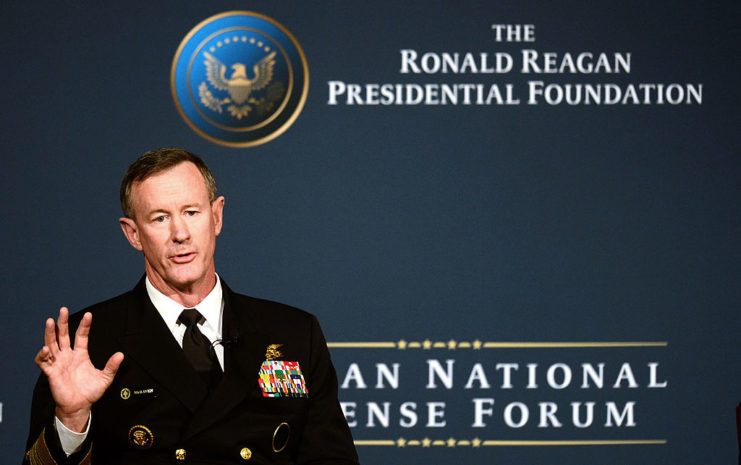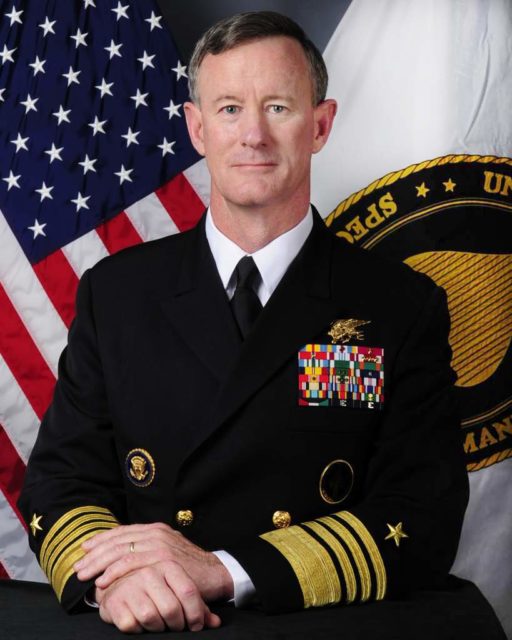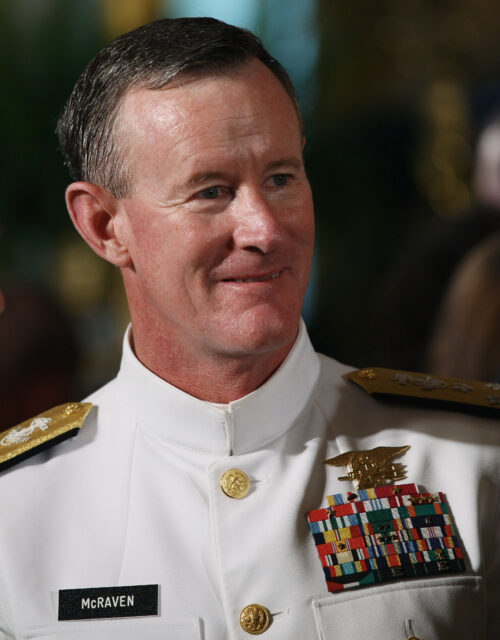William McRaven earned a reputation as one of the most distinguished figures in Navy SEAL history. Over the course of his career, he rose to the rank of four-star admiral and played a key role in orchestrating the mission that eliminated Osama bin Laden—an event widely seen as a turning point in the war on terror. When he retired in 2014, McRaven left behind a powerful legacy shaped by his sharp strategic mind, steady leadership under pressure, and profound impact on U.S. special operations and military doctrine as a whole.
William McRaven’s upbringing

William McRaven’s path to a military career appeared to be set from the start. Born in Pinehurst, North Carolina, he spent his early years there while his father, Claude, was stationed at Pope Army Airfield. A World War II-era Spitfire pilot and former NFL player, his father likely had a significant influence on McRaven’s decision to pursue a military career.
While in elementary school, McRaven moved to Texas, where he became heavily involved in track and field. He later joined the Navy ROTC program and, in 1977, graduated from college with a Bachelor’s Degree in journalism.
McRaven’s early military career

After graduating from college, William McRaven launched his military journey by entering the grueling Navy SEAL training pipeline. He successfully completed the demanding program and, following a six-month probationary period, officially earned his place among the SEALs.
In the early 1980s, McRaven was assigned to Dam Neck, Virginia, where he served under Richard Marcinko—the founding commander of SEAL Team 6. Their working relationship was strained, and McRaven was eventually removed from the unit. Marcinko later commented on their differences, saying, “He was a bright guy, but he didn’t like my rude and crude way. If I was a loose cannon, he was too rigid. He took the ‘special’ out of special warfare.”
Still, the setback didn’t halt McRaven’s rise. He went on to serve as a task unit commander during the Persian Gulf War and later earned a Master of Arts degree from the Naval Postgraduate School in 1993, further strengthening his strategic and leadership skills.
Broken in half

While McRaven was well on his way to a storied military career, it almost didn’t happen. He told NPR in 2019 about a ’01 training exercise where he was nearly killed after being hit in the air by another parachutist.
“I kind of tumble through the parachute. But I’m stunned,” he said. “I’m not exactly sure what’s happened. I don’t know whether I’ve been knocked unconscious. I don’t know whether I’ve been dazed. And now I’m tumbling out of control towards the ground.”
He continued, “Because I was tumbling, the pilot chute came out and wrapped around one leg, and then another part of the parachute called the riser came out and wrapped around my other leg. So now I am tangled up in my parachute, falling towards the ground. The good news is, as I fell a couple hundred feet or a thousand feet or so, the parachute finally opened. The bad news is, when a parachute opens, it blossoms.”
The accident resulted in a broken pelvis for McRaven. A few months later, 9/11 happened. At this time, he was still recovering from his injuries.
Operation Neptune Spear

In 2011, McRaven, who was then serving as a vice admiral in the US Navy and heading the Pentagon’s Joint Special Operations Command, received a pivotal briefing from CIA Director Leon Panetta. Panetta informed him that the agency had pinpointed Osama bin Laden’s location and tasked McRaven with leading the mission to eliminate him. Known for his expertise in planning and executing high-stakes covert operations, McRaven was given full authority to oversee the operation.
The operation culminated in success, with SEAL Team 6 carrying out the raid that led to bin Laden’s death on May 2, 2011. McRaven’s leadership and strategic brilliance earned him widespread recognition, and he was named a finalist for Time’s Person of the Year.
McRaven formally retired in 2014

On September 1, 2014, William McRaven stepped away from active duty, concluding his tenure as the Navy’s longest-serving SEAL—a distinction known as the Bull Frog title. Following his retirement, he transitioned into academia, taking on the role of Chancellor at the University of Texas, his alma mater.
Even in retirement, McRaven has remained engaged in public life. He’s authored multiple books and occasionally shares his insights on national security and leadership through media appearances. At one point, he was considered a potential candidate for Secretary of Defense in the Biden administration, though the appointment ultimately went to Lloyd Austin III.
